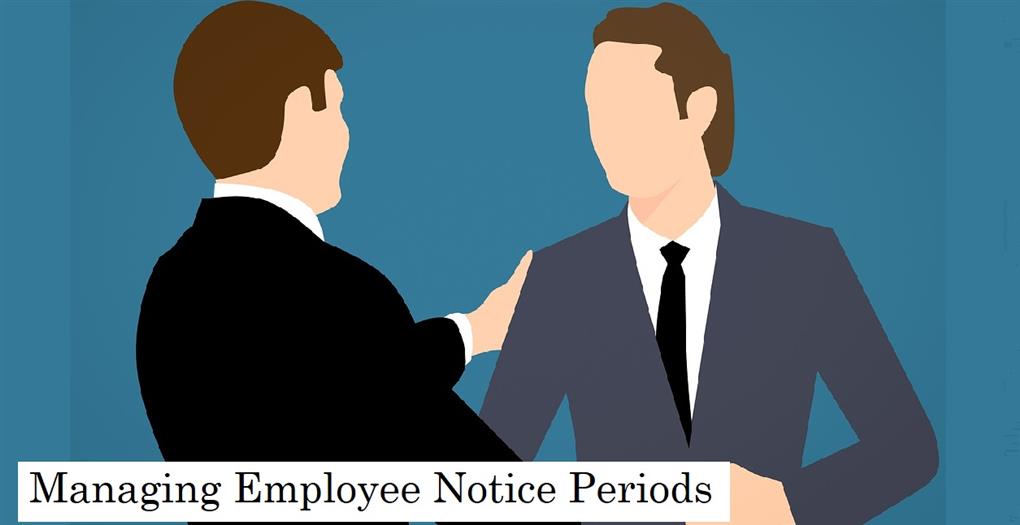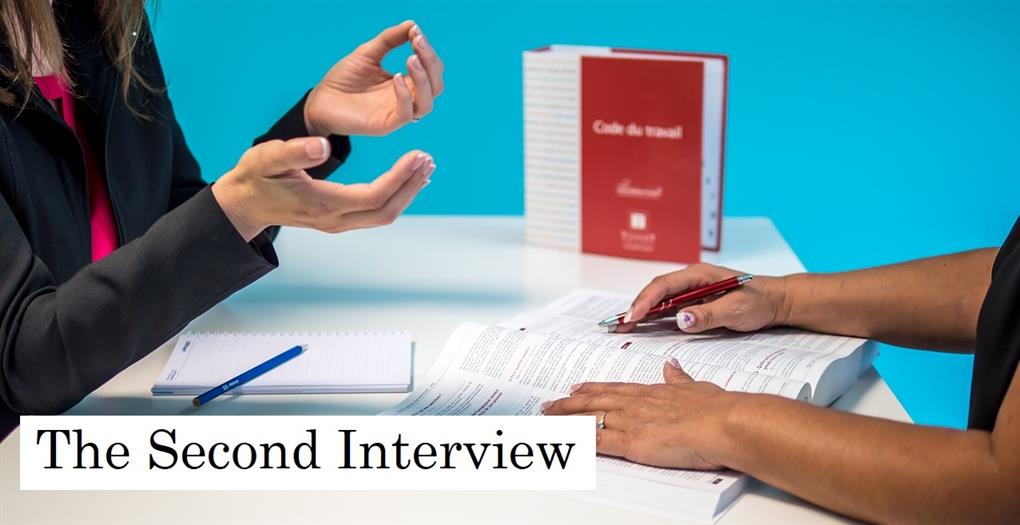Notice periods are a two-way street. On the one hand, they protect the business, giving it time to replace a departing member of staff.
On the other, it allows the employee a time and/or financial buffer if the company wants to part ways with them.
In this article, we’ll examine notice periods and how you as an employer should use them when a member of the team resigns.
https://www.aaronwallis.co.uk/employer/advice/employee-notice-periods
Sunday, 23 September 2018
Tuesday, 18 September 2018
How to WOW in a competency based interview using the STAR method
 Competency-based interviews have been around for a while now and are reasonably commonplace with companies that have a planned recruitment process.
Competency-based interviews have been around for a while now and are reasonably commonplace with companies that have a planned recruitment process.However, every time that we mention to a candidate that their meeting will be competency-based, you can almost hear an audible 'shiver' descending through their spine.
This has always been a decent page on our site, but I re-read it recently and felt that it needed sprucing up.
So, we've reviewed the page and expanded upon the commonly used STAR method to help candidates prepare for the type of questions that they will be asked. Hope that it's useful!
How to WOW in a competency-based interview using the STAR method
Monday, 10 September 2018
Logic-Based Interview Questions For Employers

Brain teasers to source the brightest candidates
Logic-based interview puzzles are becoming increasingly popular in recruitment processes to help employers find the brightest candidates and gain insight into a candidate’s thought process.Brain teasers are particularly popular in the tech sector, where employers want to find the most logical candidates who can help them advance with their next innovative product launch.
Famously, Google is very keen on logic puzzle interview questions, even ceasing to ask some of their more difficult questions as “they were too tricky”. More recently, tech giants like Airbnb and Facebook have adopted logic puzzle questions to find the right software developers to keep them ahead of the competition.
Integrating logic based interview questions into a recruitment process can be a great opportunity to see how a candidate thinks on their feet. It isn’t necessarily about getting the answer right but more of a measure to see how they apply logic and question the information provided.
Integrating logic based interview questions into a recruitment process can be a great opportunity to see how a candidate thinks on their feet. It isn’t necessarily about getting the answer right but more of a measure to see how they apply logic and question the information provided.
Too often interviews rely on evaluating the achievements of a person’s past, which is important, but logic-based questions can be a great indicator of how the candidate deals with the problems that are placed in front of them.
With this in mind, Aaron Wallis Sales Recruitment has collated a series of 3 great logic puzzle questions for employers to work into their recruitment processes. For more information click on this link: https://www.aaronwallis.co.uk/employer/advice/logic-interview-questions
With this in mind, Aaron Wallis Sales Recruitment has collated a series of 3 great logic puzzle questions for employers to work into their recruitment processes. For more information click on this link: https://www.aaronwallis.co.uk/employer/advice/logic-interview-questions
Tuesday, 28 August 2018
How To Resign & Resignation Letter Template
I was asked earlier for some tips on how to resign and what a resignation letter should contain. We did already have an article on our site but I decided to expand upon this and include a sample template.
The article can be found here: https://www.aaronwallis.co.uk/candidates/advice/resignation-letter-template
The article can be found here: https://www.aaronwallis.co.uk/candidates/advice/resignation-letter-template
Friday, 24 August 2018
How to Get an Entry Level Sales Job
You may have discovered that your personality type is perfectly suited to a sales position. Sales jobs, despite the stereotypes, are not best carried out by people who are pushy, aggressive, and egotistical in their approach to dealing with customers. In fact, the best salespeople are modest and humble. In addition, if you are the kind of person who is highly conscientious (responsible and reliable), people-oriented, achievement-oriented, curious, and never discouraged by a challenge, then sales could be the right career path for you.
Finding a high-quality entry level sales job with good prospects can be a challenge. But there are many things you can do to make you an attractive candidate. Recruiters will want to see that you have the necessary experience and skills to excel in the position.
Work Experience
During 6th form, you’ll most likely get the opportunity to gain some work experience. If you want to increase your chances of getting an entry level sales job, then it’s worth specifically looking for short-term placements (usually 1-2 weeks, but sometimes longer) where you can get some sales work experience. Many larger companies, such as Microsoft, Nestle, Nissan, and Unilever offer summer placements.
If you’re still in school or studying at university, then it may be worth looking for part-time work. This would put you at a significant advantage over other candidates applying for an entry level sales job. There are plenty of jobs in retail, hospitality, and telesales available on a part-time basis. For instance, you could get relevant experience by working as a retail sales assistant.
Internships
Another option is to do an internship. These will also be a short-term commitment (usually ranging from a few weeks up to a few months), so they can easily be done during the summer holidays (if you’re at school or university) or after graduation. Some internships are longer term. For example, big companies like Microsoft and Nestle – as well as offering work placements – have opportunities for one-year industrial internships in sales or customer management.
Other recruiters offer internships in sales, marketing, or general management that act as a fast-track to graduate sales positions. Before agreeing to an unpaid internship, it’s important to find out, firstly, whether you can actually afford it. Many unpaid internships are full-time and based in London, so take into account all of the costs involved. Also, you need to figure out whether the internship is technically legal. You’re entitled to the minimum wage if you will be:
· working set hours
· doing work that would otherwise be done by an employee
· working unsupervised
· working under a contract (whether implied or explicitly expressed)
· working to deadlines
· managing staff
Basically, when you see a listing for an internship, or you’re interviewed for one, if it seems like you’ll be doing work which you would normally be paid for, then you probably should be paid for it.
Attending relevant networking events is another way to give you important insight into what a sales job is like, as well as help you to build essential skills, such as communication, active listening, and rapport building.
Skills That Look Good on a CV
Whether you do an internship, a work placement, or a part-time job, there are certain skills you can develop that will make you an ideal candidate for an entry level sales position. These skills include:
· Communication
· Product knowledge
· Active listening
· Rapport building
· Teamwork
· Negotiation
· Networking
· Customer service
· Marketing
· Management
· Public relations
· Persuasion
· Public speaking
· Presentation skills
Remember, though, you don’t just want to list these skills on your CV without any evidence to back them up. That’s easy, generic, and unimpressive. An employer will want to know specific examples of how you developed these skills, put them into practice, and achieved results and progress because of them.
A Relevant Degree
Earning a degree that is related to sales is not necessary to get you an entry level job. But it can give you a massive leg up. After all, the graduate jobs market is highly competitive. According to one Master Avenue’s 2018 survey, the degrees most likely to get you a sales job include Economics, Business Administration, and Marketing.
If you’ve already got a degree under your belt and it doesn’t really tie into sales, don’t worry – there’s no need to go back to university and pay for another degree. There are plenty of free online courses to help you gain the knowledge that will make you a prime candidate for an entry level sales job.
Ultimately, employers are looking for graduates who have relevant experience and who show commitment to their career progression. It is expected that 32% of a recruiter’s entry level sales jobs will be taken up by graduates with previous experience of working for that company. This means that getting a work placement or paid internship at a company you would love to work for will give you the best chances of landing a fulfilling and promising entry level job.
Guest Post: Sam Woolfe writes for Inspiring Interns, which specialises in sourcing candidates for internships and graduate jobs. He is particularly interested in self-development, psychology, mental health, and the future of work. Most of all, though, Sam is passionate about helping people find work that is meaningful and fulfilling. You can follow him on Twitter and find more of his work at www.samwoolfe.com.
sales, recruitment, news, info
Aaron Wallis,
entry level sales,
sales jobs
Thursday, 26 July 2018
Interviewing For Cultural Fit and Example Questions
It’s not enough to simply hire someone who has the skills and experience to fill your open position.
Smart employers must also satisfy themselves that the potential recruit will fit into the culture of the business and sign up to its vision and values. Read on to learn more about cultural fit, and some pointers for employers and candidates to look out for in an interview.
We’ll finish up with 10 example cultural fit interview questions. Read more here: https://www.aaronwallis.co.uk/employer/advice/cultural-fit-interviewing
sales, recruitment, news, info
Aaron Wallis,
Business,
Career Advice,
Management,
Marketing,
Sales industry
How to Conduct an Exit Interview
When one of your employees leaves, you’ve one last chance to get something useful from them. Not the keys to their office desk, but their honest thoughts about your business and the lessons that you can learn from why they are leaving.
In this article, we’ll explore how you can conduct a productive exit interview - https://www.aaronwallis.co.uk/employer/advice/exit-interviewing
sales, recruitment, news, info
Aaron Wallis,
Business,
Career Advice,
exit interview,
Management,
Marketing,
Sales industry
Wednesday, 18 July 2018
How To Conduct a Second Interview (For Employers)
Here's a great article from Simon on how employers can get the best out of second interviews - https://www.aaronwallis.co.uk/employer/advice/second-interviewing.aspx
sales, recruitment, news, info
Aaron Wallis,
Business,
Career Advice,
Management,
Marketing,
Sales industry
Monday, 9 July 2018
Five Top Tips for Value Based Interviewing (VBI)
Using value-based recruitment to find the right staff for your team.
Many sectors in the UK have started incorporating value-based interviewing (VBI) into their recruitment processes to ensure that they recruit people who match their organisational values.
Particularly in organisations where client, customer or patient care is critical to success, value based interviewing can be a great way to gain insight into the way people think or may make decisions.
Over the last few years, both public and commercial organisations, such as the NHS and Nissan, have invested in value based methods of recruitment to find the right staff.
With this in mind, Aaron Wallis Sales Recruitment have collated some essential tips for getting the most out of value based interviewing: https://www.aaronwallis.co.uk/employer/advice/value-based-interviewing.aspx
Some roles or sectors may require employees with a stricter set of values than other organisations. For example, workers in the healthcare industry may be expected to have a clearer set of ethics than the more commercial organisations, but similarly, employees working in HR or data protection would be better suited with values of integrity and honesty.
Use value-based interviewing in these situations to find staff who will fit both role and organisation.
Before interviewing, it’s important to consider the values that you need from your staff for them to reach their potential and perform well in your company or organization. Make a list of the values of your top performers in similar or parallel roles and use these to inform what you’re looking for from your next employee.
Break down this list of values into ‘must-haves’ and ‘nice-to-haves’, which will help inform the evaluation process and your final decision between candidates.
After creating your list of ‘must-have’ values for the role, structure the interview questions by trying to assess whether a candidate has the ethics you’re looking for. For example, if you’re looking for an employee with the value of determination, you could ask the interviewee: “Tell us about a mistake you’ve made? What did you do about it and what was the end result?”
Have a different question in mind for each of your ‘must-have’ values to really get a sense of how a candidate would perform in your organisation.
Clever candidates can be coy in saying exactly what they think an employer will want to hear. In the case of a healthcare organisation, candidates could talk in great detail for their passion for caring for people, without providing any real examples of how they deal with real-life situations. It’s your role as the interviewer to probe deeper with follow-up questions that explore a candidate’s real background and values.
When designing questions, ensure that they don’t cross an ethical line. With recent discriminatory legislation coming into the workplace, it can be easy to trip-up on questions which may initially appear innocent. Questions around age, nationality, marital or family status may seem like question ‘openers’ or friendly discussion, but can often cross the line and more often than not it's not your place as an employer to ask these type of questions.
If in doubt on interview questions, consult online guides on ‘interview questions you are not allowed to ask’ or government recruitment discrimination legislation.
Particularly in organisations where client, customer or patient care is critical to success, value based interviewing can be a great way to gain insight into the way people think or may make decisions.
Over the last few years, both public and commercial organisations, such as the NHS and Nissan, have invested in value based methods of recruitment to find the right staff.
With this in mind, Aaron Wallis Sales Recruitment have collated some essential tips for getting the most out of value based interviewing: https://www.aaronwallis.co.uk/employer/advice/value-based-interviewing.aspx
1. Use VBI in the right situation
Use value-based interviewing in these situations to find staff who will fit both role and organisation.
2. Consider the values right for your organisation
Break down this list of values into ‘must-haves’ and ‘nice-to-haves’, which will help inform the evaluation process and your final decision between candidates.
3. Write interview questions with these values in mind
Have a different question in mind for each of your ‘must-have’ values to really get a sense of how a candidate would perform in your organisation.
4. Use follow-up questions to delve deeper
5. Be careful what you ask
If in doubt on interview questions, consult online guides on ‘interview questions you are not allowed to ask’ or government recruitment discrimination legislation.
sales, recruitment, news, info
Aaron Wallis,
Business,
Career Advice,
Management,
Marketing,
Sales industry
Monday, 2 July 2018
Do you have to work out your notice period?
We are regularly asked whether you have to work out your notice period. Here are some pointers and advice on working through your notice period to ensure that 'bridges are not burnt' - https://www.aaronwallis.co.uk/candidates/advice/working-out-your-notice
sales, recruitment, news, info
Aaron Wallis,
Business,
Career Advice,
Management,
Marketing,
Sales industry
Thursday, 28 June 2018
How Many Candidates Should You Interview?
You’ve created the perfect job description and been inundated with CVs from hundreds of potential recruits. But how many of them should you interview?
Too many and you’ll be wasting your and their time, too few and you might miss out on the perfect candidate.
Here, we’ll explore the interview options to help find your ideal new starters - https://www.aaronwallis.co.uk/employer/advice/how-many-candidates-to-interview
sales, recruitment, news, info
Aaron Wallis,
Business,
Career Advice,
Management,
Marketing,
Sales industry
Tuesday, 26 June 2018
Brief article on how to conduct a panel interview
A panel interview consists of two or more people sitting together to ask a candidate questions.
Typically, your panel might consist of someone from human resources, the hiring manager and an employee from the hiring department. But what are the benefits, and how do you lead a panel interview? Here, we’ll explain why it’s a useful tool in your recruitment armoury.
Read more here: https://www.aaronwallis.co.uk/employer/advice/how-to-conduct-a-panel-interview
sales, recruitment, news, info
Aaron Wallis,
Business,
Career Advice,
Management,
Marketing,
Sales industry
Monday, 25 June 2018
How To Answer The 'Tell Me About Yourself' Interview Question
‘Tell me about yourself’ is a question posed by nearly every interviewer, yet research from Aaron Wallis Sales Recruitment suggests that it is a question that a vast amount of people struggle with: on average over 33,000 people in the UK search online each month for answers or guidance on answering the question (Google Keyword Planner, 2018)
With this in mind, sales recruitment agency, Aaron Wallis, has collated a series of hints and tips for getting the most out of the common interview question and performing to your best ability.Be prepared
As ‘tell me about yourself’ is such a common interview question, there’s nothing silly about writing down your answer and saying it in front of the mirror, or practicing your answer with someone you know. Whilst it can be good to have a rehearsed answer, it's also worth bearing in mind that you don’t want to sound like you’re reciting it from memory. Be prepared to appear confident but natural.
Structure your answer
The best answers to the question give a brief overview of you and your experience, without taking too much away from the later stages of the interview.
Begin by outlining your current or most recent role and describing the skills or attributes that you bring or brought to the position, ensuring these will be relevant to the job you’re going for.
Finish up by saying while you’ve enjoyed your work, you’re excited for the fresh challenge this new opportunity brings, and why.
Consider what you want to get across
A common pitfall is mentioning too much about yourself that may either cause you to waste time during your interview or lose the natural flow of the conversation. Chances are that your interviewer has already studied your CV, so does not need to be told about every job you’ve ever had, or what your exam results were – even if they were straight As.
Avoid the irrelevant or controversial
Similarly, although you might be a cycling fanatic or a keen cook, this can be totally irrelevant at the start of the opening stage of the interview. In the majority of job interviews, avoid talk of family, pets and politics.
Get ready for the following questions
If you’ve introduced yourself well, your interviewer is going to be impressed and keen to delve deeper. He or she will want to explore your experience, strengths and weaknesses further, but will do so under the impression you’re a good fit for the role. Make sure you can back up your initial answer with examples or anecdotes. So, if you said: “In my current role I have increased sales by broadening our customer base,” just make sure you’re ready to answer follow-up questions later in the interview like: “How much did you increase sales by?”, or “How many extra customers did you bring on board, and how did you find them?”
Robert Scott, Managing Director of Aaron Wallis said: “Often the simple questions can be the ones which are the most unnerving if you haven’t considered what you might say. Generally, it can be a good idea to plan out the interview in your head from the very start to the very finish. It’s never a bad thing to be overprepared!”
For a more detailed guide on answering the ‘tell me about yourself interview’ question,
please visit: https://www.aaronwallis.co.uk/candidates/advice/answering-tell-me-about-yourself
References
please visit: https://www.aaronwallis.co.uk/candidates/advice/answering-tell-me-about-yourself
References
1 Data from Google’s Keyword Planner, looking at average monthly searches for queries relating to ‘answering the tell me about yourself question’ from June 2017 - May 2018 in the United Kingdom
sales, recruitment, news, info
Aaron Wallis,
Business,
Career Advice,
Management,
Marketing,
Sales industry
Sunday, 25 February 2018
How Did The World's Top 100 CEOs Get To The Top?
What Makes a Top CEO?
The Education & Career Steps of The World’s Best CEOs
- 42% of the world’s top 100 CEOs are between the age of 56 and 60.
- 98% of the most influential 100 CEOs have a degree, with 36% of them earning a degree in a business-related subject
- Only 4 of the world’s biggest companies have a female CEO, 96 are male
- 28% of CEOs have a career background in operations, 25% in finance
What type of person is more likely to make it to the top of a multinational business? New research from Aaron Wallis Sales Recruitment suggests that people who people who have a career background in operations or finance are the most likely leaders.
A study into the most influential 100 CEOs in the world has investigated whether there is any trend between your first career steps and how far you progress. The research suggests that it is near impossible to make it to the top of one of the largest businesses without a degree, 98% of the top 100 CEOs are graduates. Of the 98 graduates, the most popular degree type was business (36%) followed by engineering, accounting for 23% of the graduate CEOs.
The breakdown of the top 5 degree types for CEO graduates can be seen below:
Degree Type
|
Count of CEOs
|
Business
|
33
|
Engineering
|
21
|
Economics
|
10
|
Accounting & Finance
|
9
|
Computer Science
|
4
|
The research also looks into the age and gender of the largest companies’ CEOs. 96% of these CEOs are male, with only 4 of the largest businesses in the World having a female CEO.
The average ‘Top CEO’ age is 59, with by far the most prominent age group being between 56-60, accounting for 42% of the CEOs reviewed. The top 5 age groups can be seen below, out of 96 CEOs with publicly available information of their age:
Age Range
|
Count of CEOs
|
56-60
|
40
|
61-65
|
23
|
51-55
|
15
|
66-70
|
8
|
41-45
|
3
|
Finally, the study reviews the career backgrounds of the most powerful CEOs, grouping their career backgrounds into concise categories. 54% of the ‘Top CEOs’ have a career background in either finance or operations.
The top 5 career backgrounds can be seen below:
Professional Background
|
Proportion of CEOs
|
Operations
|
28%
|
Finance
|
26%
|
R & D
|
14%
|
Data Analysis
|
11%
|
Sales
|
8%
|
For the full results of the study, please visit: https://www.aaronwallis.co.uk/news/top-ceos-in-the-world.aspx
Rob Scott, Managing Director at Aaron Wallis Sales Recruitment said:
“In 2018 we are seeing that it is near impossible to lead a big business without being a graduate and that earning an MBA can be a real advantage to progressing your career. Starting out in an operations or finance related field can give you the mindset and strategic thinking which is necessary to make it to the top.
“In 2018 we are seeing that it is near impossible to lead a big business without being a graduate and that earning an MBA can be a real advantage to progressing your career. Starting out in an operations or finance related field can give you the mindset and strategic thinking which is necessary to make it to the top.
It’s also unsurprising how many CEOs in our study have worked in a sales role at some point in their career, teaching you the communication skills to manage staff and negotiate large business deals.”
ENDS
About the research
The study was conducted by Aaron Wallis Sales Recruitment, researching the CEOs of the world’s largest businesses based upon Forbes data.
Research on the CEOs came from a range of sources, mixing Wikipedia data with reports from publications and outlets to collate the first career moves and education of the world’s most powerful CEOs.
sales, recruitment, news, info
Aaron Wallis,
Business,
Career Advice,
Management,
Marketing,
Sales industry
Monday, 27 November 2017
Aaron Wallis Conducts Study Into Fastest Growing Brands 2017
The Fastest Growing Brands of 2017
(Out of the 100 most valuable brands in the World)
· The women’s fashion retailer PrettyLittleThing topped our study, doubling their ‘search interest’ between 2016 and 2017. Gucci and Louis Vitton also appeared in the top 5 climbing brands out of the 100 we reviewed.
· A number of Chinese brands scored very highly in our study including Tencent, Maotai, Baidu and Hauwei, who all grew their search interest by over 10% year-on-year.
· There is a trend of eCommerce brands growing in search interest, with big names like Amazon and Zara also appearing in our top 20 brands by search interest increases.
Which brands have grown the most in presence in 2017? New research from Aaron Wallis Sales Recruitment suggests that PrettyLittleThing, Tencent (WeChat) and Gucci have grown the most in brand interest this year.
The study uses weekly indexes from Google Trends to measure ‘search interest’ - where search-engine data is aggregated around a topic, or in this case a business, to reflect changes in searches and discussion. Weekly data from January 2016 to November 2017 was collected and averaged – comparing the average search interest score of 2017 with the same time period of 2016.
We have segmented our results into B2C and B2B brands as follows:
10 Fastest Climbing Global Consumer Brands
Brand
|
Relative Search Interest - 2016
|
Relative Search Interest - 2017
|
Year-On-Year
Difference |
PrettyLittleThing
|
25.0%
|
58.6%
|
33.6%
|
Gucci
|
34.6%
|
61.7%
|
27.2%
|
Louis Vuitton
|
64.1%
|
82.8%
|
18.8%
|
Maotai
|
43.9%
|
60.6%
|
16.6%
|
Netflix
|
71.8%
|
86.0%
|
14.2%
|
China Mobile
|
72.1%
|
84.7%
|
12.5%
|
Xfinity
|
63.4%
|
74.9%
|
11.5%
|
Ping-An Insurance
|
59.6%
|
70.9%
|
11.3%
|
KFC
|
77.6%
|
88.9%
|
11.3%
|
Huawei
|
67.7%
|
78.5%
|
10.8%
|
10 Fastest Growing B2B Brands
Brand
|
Relative Search Interest - 2016
|
Relative Search Interest - 2017
|
Year-On-Year
Difference |
Tencent
|
28.1%
|
61.4%
|
33.3%
|
Baidu
|
75.9%
|
89.7%
|
13.8%
|
SalesForce
|
74.8%
|
83.2%
|
8.3%
|
DHL Express
|
64.5%
|
70.7%
|
6.2%
|
Accenture
|
78.3%
|
84.4%
|
6.1%
|
FedEx
|
63.7%
|
69.1%
|
5.5%
|
Costco
|
63.7%
|
68.7%
|
5.0%
|
Rolls Royce
|
57.2%
|
62.1%
|
4.9%
|
United Parcel Service
|
58.2%
|
62.4%
|
4.2%
|
China Construction Bank
|
80.5%
|
84.0%
|
3.4%
|
For the full results of the study, please visit: https://www.aaronwallis
ENDS
About the research
The study was conducted by Aaron Wallis Sales Recruitment, collecting weekly search interest data from Google Trends. 100 of the most valuable brands in the World were reviewed using Global search volume data.
Average search interest data was compared from two time series:
01/01/2016 – 19/11/2016
01/01/2017 – 19/11/2017
01/01/2016 – 19/11/2016
01/01/2017 – 19/11/2017
sales, recruitment, news, info
Aaron Wallis,
brand growth,
Business,
Career Advice,
Management,
Marketing,
Sales industry
Subscribe to:
Posts (Atom)





